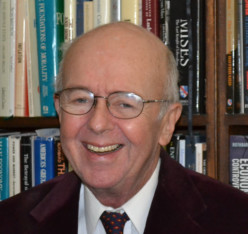White Supremacy No, Enlightenment Superiority Yes

White supremacy is the belief that white people are inherently superior to others and should somehow reign supreme over them. No decent person supports this idea these days; even Donald Trump found it necessary to repudiate it.
Any such attempt to sum up the characteristics of one race versus another leads straight to quicksand. The first problem is to decide who fits one’s favorite racial or ethnic category and who doesn’t. This was a big problem for the Nazis, who had to rationalize exclusion of English people from their so-called Aryan race while squeezing the Japanese in. Is Barack Obama black or white? He had one parent in each category. If half of a Mexican’s ancestors were European and half Mayan, is that person white? Incidentally, anyone who insists on attaching a race label to me can say European-American, not white, thank you very much.
Even if we somehow decide who’s white and who isn’t, what characteristics would make any particular person or group superior? Intelligence can be measured with some accuracy but what about compassion, empathy, perseverance, fortitude? Such things are well-nigh impossible to measure. And if they could be measured, one would have to average them within the various races.
White supremacy belongs in the trash heap of ideas as does the idea of “whiteness” espoused by many on the left, a concept akin to calling all blacks lazy. No, not supremacy; we need to recommit to the ideals of the Enlightenment as ably and courageously explained in Steven Pinker’s book Enlightenment Now: The Case for Reason, Science, Humanism and Progress.
What was the Enlightenment and why was it superior to other forms of social organization? Immanuel Kant called it humanity’s emergence from submission to religious or political authority and its turn toward the motto “Dare to Understand!” The Enlightenment is placed roughly in the latter half of the eighteenth century and had roots in the prior Age of Reason. Accompanying the intellectual unfolding was the ascendance in northern Europe of what economist and historian Deirdre McCloskey calls “bourgeoise virtue.” This phrase refers to the respect that began to be granted to producers and traders along with a gradual decline of the age-old dominance of aristocratic, religious, and military authority. If only implicitly, people began to understand that trade is based on mutual benefit and fosters peace and prosperity. Command and control, whether exercised by nobility, priests, politicians, or bureaucrats, are destructive of peace and prosperity.
Though they began in northern Europe, Enlightenment ideas have spilled over to all parts of the world: to Africa, India, Japan, and nearly everywhere in greater or lesser degrees. Enlightenment ideals are universal, transcending race and ethnicity.
What have the Enlightenment and its fruits done for us? Pinker gives a simple example: “… if I want some milk I can walk into a convenience store and a quart will be on the shelves, the milk won’t be diluted or tainted, it will be for sale at a price I can afford, and the owner will let me walk out with it after a swipe of a card …” Imagine traveling back in time two hundred years and explaining that to the average Joe, or to the Queen of England for that matter! Where is our understanding, where is our gratitude, for the countless such blessings, large and small, that the Enlightenment and its consequences brought to us?
Indeed, most of us in contemporary America live our lives in comfort, with opportunities unimaginable to our forebears or to our contemporaries in much of the world. McCloskey explains that our standard of living, as best it can be quantified, is at least thirty times what it was two hundred years ago. Not thirty percent better, thirty times better! And spread, unevenly to be sure, over a vastly larger population.
Progress! General Electric once proudly displayed its slogan, “Progress is Our Most Important Product.” No more. The word is moribund and no group has done more to quash it than modern “progressives.” Is it necessary to add that progress isn’t just about more stuff, flashier stuff, niftier gadgets, but also includes better health, cleaner water, better schools, safer streets and so on? All the latter have advanced dramatically post-Enlightenment. Such trends, covering virtually all of human welfare that can at least be roughly quantified, were documented numerically, at great length and in great variety, in Pinker’s previous book, The Better Angels of Our Nature.
We take a lot for granted. As I write I expect dependable electric power at the right voltage and frequency. I expect a responsive internet connection 24/7. Clean water out of the tap, safe and effective pills for my ailments, and so much more. These things weren’t given to us by politicians or clerics; they came from creative thinkers and doers. They’re part of our Enlightenment legacy.
Progress isn’t automatic, and worse, regress can happen. We must understand and promote Enlightenment ideas and practices: Reason, Science, Humanism and Progress.










